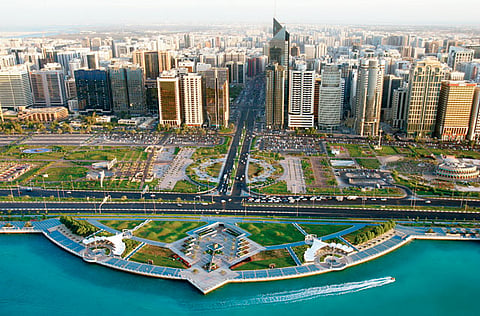UAE can avoid impact of US slowdown
The country has sufficient cash reserves that will mitigate the impact of any fall in oil prices

Abu Dhabi : The UAE can cope well if the US economy slows down in the near-term, economic experts told Gulf News on Saturday.
The country has sufficient cash reserves that will mitigate the impact of any fall in global oil prices resulting from a decline in fuel consumption in the world's largest economy and biggest oil importer, they said.
The US economy expanded at a 2 per cent annual rate in the third quarter and inflation cooled, underscoring the views of Federal Reserve policy makers who say more stimulus will be needed to spur growth.
"The UAE economy won't be affected much by a slowdown in the US economy. The local economy can absorb a moderate decline in global oil prices as its huge domestic cash reserves and investment income coming from abroad can compensate for any decline in oil export revenue. The two provide the cushion for the UAE economy and government spending," said Mohammad Amerah, an Abu Dhabi-based economist.
Economist Dr Amjad Hussain at the UAE University in Al Ain said the UAE has already built some resistance to the slowing US and global economies.
"There will be some impact here of an economic slowdown, but it won't be as severe as it was when the global financial crisis first struck. The UAE is using its resources both internally and externally to protect the country from any economic slowdown coming from outside the country," he said.
Signs of recovery
Jan Willem Plantagie, Regional Head for credit ratings agency Standard and Poor's, said the global economy is currently showing signs of positive growth and the UAE's economic growth is expected to move in line.
"The UAE's economic growth to a large degree will be driven by the demand and price for oil. A small growth is projected for the UAE's economy for 2010 — growth estimates range from close to zero per cent to up to 3.2 per cent. However, a lot will depend on how the fragile recovery in global economy [becomes stronger]," Plantagie said.
The price of oil in the international markets is currently hovering around $82 a barrel. The UAE which exports about 2.3 million barrels of oil per day, derives a major chunk of its income from crude oil exports.
Noted US economist Nouriel Roubini, who correctly predicted the global financial crisis, said last week the US economy is a "fiscal train wreck" waiting to happen that risks ushering in a period of stagnation featuring minimal growth, high unemployment and deflationary pressures.
He said that further quantitative easing likely to be announced by the Federal Reserve next Wednesday will have little effect on US growth in 2011.
Warning for US
Roubini also said the US remains on an "unsustainable fiscal course".
"The risk ... is that something on the fiscal side will snap ... The trigger could be a debt rollover crisis in a major US state government. The worst of the coming fiscal train wreck will be prevented by the Fed's easing," he said.
"But the risk is [Obama]... will then preside over... a Japanese style stagnation, where growth is barely positive, and deflationary pressures and high unemployment linger," he added.


